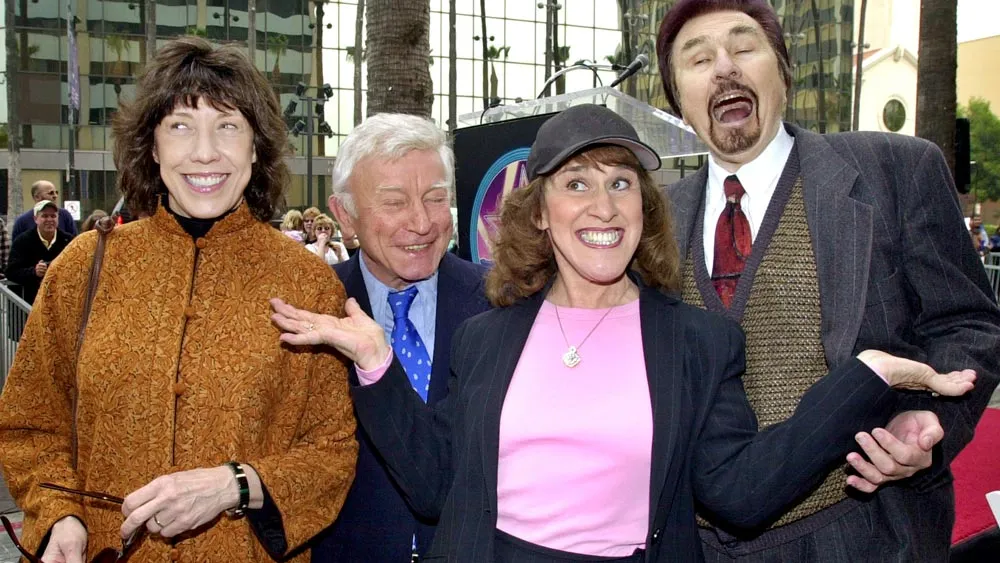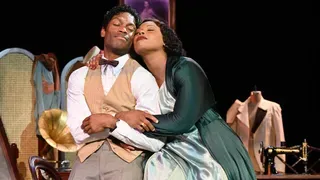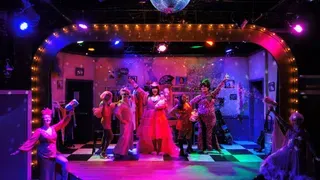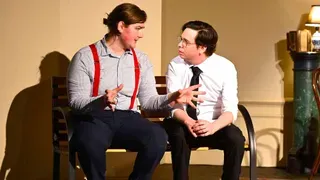February 18, 2014
Russian Transport
Becky Sarwate READ TIME: 4 MIN.
The sex trafficking industry is a hot topic, not simply because human beings have demonstrated a historically unquenchable thirst for all things lust-related. It is also because, for most of us, our nobler sensibilities shrink from the idea of forced sexual slavery, particularly involving minors.
It's abhorrent to our collective sensibilities, an easy cherry to pick from the basket of horrifying concepts. According to the website dosomething.org, there are approximately 20 million slaves in the world today, and roughly 80 percent of them are sexually exploited.
It is an uncomfortable proposition certainly, but human trafficking exists in all corners of the globe and reportedly generates approximately $32 billion in profits per year. It is not a dirty business that happens "over there." For example, the sunny and ostensibly liberal state of California includes three of the FBI's 13 highest child sex trafficking areas in the nation: Los Angeles, San Francisco and San Diego.
Steppenwolf Theatre's new production of first time playwright Erika Sheffer's 2012 work, "Russian Transport," thus discharges a ripped from the headlines sensation. The fact that the play's action centers around an immigrant family attempting to live the "American Dream" in a society where honest, hardworking people often lag behind, only reinforces the production's capture of the zeitgeist.
"Russian Transport" was selected as part of the Chicago theatrical powerhouse's 2013/2014 theme, "Getting Ahead: How Far Will You Go?," and is a perfect entry in that regard. Together, strong-willed matriarch Diana (the always magnificent Mariann Mayberry) and father figure Misha (Alan Wilder) are just a couple of parents trying to keep the best parts of Eastern European tradition alive in the family home, while leveraging every economic opportunity available to them and their children.
Eighteen-year-old Alex (Aaron Himelstein) is a student, active participant in the family business and a part-time retail worker who turns over much of his paycheck to the greater good. Diana and Misha never ask him how he's able to afford the flashy clothes he wears, or the late nights out with friends, and frankly speaking, they'd prefer to remain ignorant. It's easier for everybody that way. Self-deception that all is as wholesome and honest as it seems is a successful coping mechanism for the close-knit clan.
Fourteen-year-old Mira (an omnipresent, multi-tasking Melanie Neilan) is everything a young teenager in America should be. She is all thirst for life, adventure, travel and experience packaged in the body of a dutiful daughter. Into her world, as well as the rest of the family's, crashes Uncle Boris (Tim Hopper), the brother Diana hasn't seen for decades.
Like the young Alex, Boris is regarded by his family members as the emblem of male virility, power and success. But how Boris comes by that regard and prosperity is an open secret that like an aggressive cancer, begins to eat away at the mental stability and idealism of the young and impressionable.
In an essay included in the show's program, Steppenwolf Artistic Director Martha Lavey writes, "The great dividing line for Diana is family. She accepts Boris' involvement with an illegal business because it's profitable. That he is exploiting young women who are the same age as her daughter is irrelevant. Her ethics apply strictly to her family circle -- anyone outside of that is fair game."
Lavey writes from the perspective of Diana because it is generally accepted by every character on the canvas that she is the team leader -- a division of labor that began in the old country. She is the machine's business strategist, accountant and as it turns out, its broken moral compass. And as the play progresses, it becomes clearer that the children she raised come to adopt a more general sense of community obligation. Both Alex and Mira begin to self-destruct under the weight of truth, before ultimately setting themselves psychologically free from Diana's "every family for itself" ideology.
With so many varying perspectives explored against an ugly backdrop, it is the performances of the "Russian Transport" cast, particularly females leads Mayberry and Neilan, that render the production so powerful. Of many standout scenes, the closing visual of Mira's physical and emotional recoil from the mother she once considered her best friend, is difficult to forget.
Perhaps even more impressive a feat is that Diana is not, when all is said and done, completely detestable. The audience's knowledge of world history, and the dramatic tension so artfully built into the script, enables a collective understanding of where she has come from and what she's trying to accomplish, however misguided. We might know this family. We may indulge in seedy whispers and rumor, even as we admire their quiet labor and good manners.
The production is directed with orchestral flair by Steppenwolf Theatre Company ensemble member Yasen Peyankov. Like an experienced maestro, he asks his cast to slow down and speed up in response to the dialogue's natural rhythms.
"Russian Transport" is emotionally exhausting work, at times harrowing and often brutal, but never afraid to take a long, hard look at the underbelly of what it means to "make it." Definitely recommended spring viewing.
"Russian Transport" runs through May 11 at Steppenwolf Theatre, 1650 N. Halsted, Chicago, IL. For info or tickets, call 312-335-1650 or visit the Steppenwolf Theatre website.
Becky Sarwate is the President of the Illinois Woman's Press Association, founded in 1885. She's also a part-time freelance writer, award-winning columnist and blogger who lives in the Ravenswood neighborhood of Chicago with her partner Bob and their pet menagerie . Keep up with Becky at http://www.beckysarwate.com







